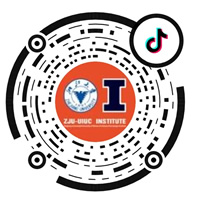Recently, the 4th National Competition for College Students in Industrialized Building and Intelligent Construction (NCCS-IBIC) came to a successful conclusion at Zhejiang University. The competition focused on the theme of "coordinated development of intelligent construction and new industrialized building" and brought together more than 320 teams and 3500 faculty and students from 215 universities across the country, including Zhejiang University, Harbin Institute of Technology, and Southeast University. Among them, Zhejiang University’s "Intelligent Manufacturing Future Team" composed of Yan Shuo, a 27’ undergraduate in Civil Engineering of ZJUI, Ma Yixuan and Li Xinyang, 25’ undergraduates in Civil Engineering of ZJUI, Wang Minyang, a 25’ undergraduate in Civil, Water and Transportation Engineering of the College of Civil Engineering and Architecture, Zhejiang University, and Zhang Xiaowu, a 27’ graduate student in Structural Engineering of the College of Civil Engineering and Architecture, Zhejiang University, won the first prize in the competition.
▲ Yan Shuo (second from the right) represents the team to receive the award
▲ Award Trophy for the team
The award-winning project focuses on the design of prefabricated residential buildings, adopting multiple innovative technologies and specific algorithms to improve the efficiency of design, construction, and management. Firstly, the project utilizes Building Information Modeling (BIM) and collision detection algorithms to unify and optimize the management of pipelines, HVAC, and drainage systems, reducing pipeline conflicts and improving team collaboration efficiency. At the same time, the project utilizes VR/AR visualization design methods and the Grasshopper platform to achieve multi viewpoint presets and interactive scripts, in order to adjust design parameters in real-time in the VR/AR environment, improve remote collaborative work efficiency, and achieve cloud based multi-location synchronous observation and discussion through a self-designed server. In terms of structural design, the project applied progressive structural optimization algorithms and conceptual design, combined with optimization programs developed in C++programming language, to achieve intelligent automatic layout of shear walls in high-rise buildings. By discretizing shear walls into wall elements and combining them with comprehensive stress indicators for multiple working conditions, efficient utilization of materials and optimization of seismic performance of the structure have been achieved. In addition, the project adopts 3D laser scanning technology, uses DBSCAN clustering algorithm for point cloud denoising, combines RANSAC algorithm and single class support vector machine (OC-SVM) algorithm to segment concrete, steel bars, and grouting sleeves, and uses α - shape algorithm for edge point detection. Subsequently, the team used the PCCR Net model to identify and measure the scanned point cloud, ensuring the size and connection accuracy of the prefabricated components, significantly improving detection efficiency and assembly quality. The technological innovation of automation and intelligence has enabled this project to achieve a new breakthrough in efficient, precise, and intelligent design and construction of prefabricated buildings.
The team's project responds to the development direction of green, low-carbon, and prefabricated buildings advocated in the national "14th Five-Year Plan" for the construction industry and achieves true intelligent construction through optimizing processes and reducing labor costs. During this process, Yan Shuo was responsible for the design and topology optimization of shear walls and served as the main speaker in the defense; Ma Yixuan was responsible for module and component design and participated in structural verification; Li Xinyang is responsible for optimizing the algorithm for point cloud processing. Everyone performed their respective duties, worked together to continuously polish and improved the construction process, and ultimately achieved excellent results in the competition.
▲ Team members showcase their project in the competition
When it comes to winning awards, Ma Yixuan shared with us, "This experience has made us deeply realize the important role of innovative technology in promoting the modern construction industry, and continuous exploration and breakthroughs in the fields of green and intelligent buildings are particularly crucial. Through this competition, we not only deepened our understanding of architectural design and construction, but also enhanced our team collaboration and practical innovation abilities, laying a solid foundation for further exploration and innovation in the construction industry in the future.
Focusing on the theme of "coordinated development of intelligent construction and industrialized building," the competition is aimed at achieving "informatization, industrialization, greening, and intelligence" in the construction industry, covering multiple disciplines such as architecture, structure, HVAC, water supply and drainage, electrical engineering, management, Internet of Things. The competition intended to encourage college students to carry out innovative practices in the area of low-carbon and collaborative applications, promote the reform of student cultivation in related fields, and build new forms of industry-university-research cooperation platforms. ZJUI will take this opportunity to promote learning and creativity through competitions, strengthen students' innovative thinking ability, teamwork ability and practical ability, expand students' engineering horizons, and cultivate more innovative, interdisciplinary, and practical professionals who can adapt to the development of the new era.







